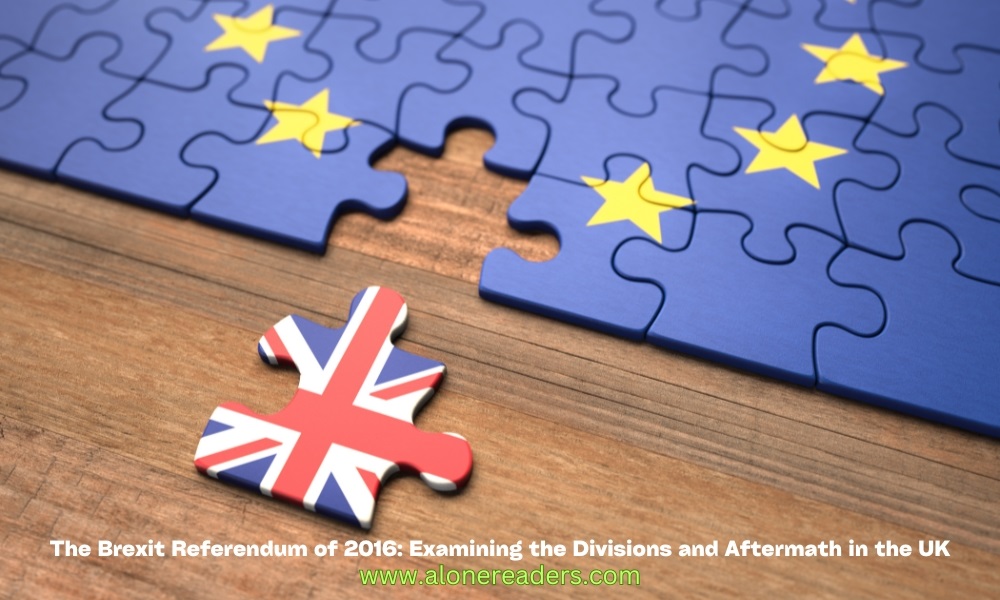
The Brexit Referendum of 2016 stands as one of the most significant and polarizing political events in recent British history. On June 23, 2016, the United Kingdom voted to leave the European Union, a decision that sent shockwaves through the nation and the world. The referendum, which culminated in a 52% to 48% vote in favor of leaving the EU, not only signaled a major shift in UK's foreign and domestic policy but also highlighted deep divisions within British society.
The origins of the Brexit vote can be traced back to growing euroscepticism in the UK, fueled by concerns over sovereignty, immigration, and the perceived bureaucratic overreach of the EU. The Conservative Party, led by then-Prime Minister David Cameron, promised a referendum on EU membership in their 2015 election manifesto, a move seen as an effort to appease the eurosceptic wing of the party and to counter the rise of the UK Independence Party (UKIP), which was gaining ground with its anti-EU stance.
The campaign period leading up to the referendum was intense and deeply divisive. The 'Leave' campaign, supported by prominent politicians like Boris Johnson and Nigel Farage, focused heavily on themes of national sovereignty and control over immigration. They argued that leaving the EU would allow the UK to regain control over its borders, laws, and economy. The 'Remain' campaign, backed by Cameron and other key figures in the Labour Party, warned of the economic risks of leaving the single market and the potential geopolitical isolation that could follow.
As the campaign unfolded, it became clear that the referendum was about more than just EU membership. It was a referendum on globalization, immigration, national identity, and the UK's place in the modern world. The divisions were not just political but also geographical and generational. While major cities like London and regions like Scotland and Northern Ireland voted overwhelmingly to remain, rural areas and smaller towns, particularly in England and Wales, voted to leave. Younger voters tended to favor remaining in the EU, while older voters leaned towards leaving.
The aftermath of the referendum has been just as contentious as the campaign itself. The result led to the resignation of David Cameron and the eventual rise of Theresa May as Prime Minister, who took on the daunting task of negotiating the UK's exit from the EU. The political landscape of the UK was transformed, with the Conservative Party becoming more firmly aligned with Brexit and the Labour Party struggling to define its position on the issue.
Negotiations with the EU proved to be complex and fraught with difficulty. Issues such as the rights of EU citizens in the UK and British citizens in the EU, the financial settlement, and the question of the Irish border presented significant challenges. These negotiations highlighted the complexities and intricacies of unravelling over forty years of political, economic, and legal integration.
Brexit also had profound implications for the unity of the UK. Scotland, which voted to remain in the EU, saw renewed calls for independence, with the Scottish National Party arguing that Scotland should not be forced to leave the EU against its will. Similarly, in Northern Ireland, the issue of the border with the Republic of Ireland brought the delicate balance of the Good Friday Agreement into focus, raising concerns about the peace process.
The economic impact of Brexit has been a topic of much debate and speculation. While the 'Leave' campaign argued that Brexit would free the UK from the constraints of the EU and open up new economic opportunities, many economists warned of the risks to trade, investment, and the financial sector. The uncertainty surrounding Brexit negotiations led to fluctuations in the pound and raised concerns about the UK's economic future.
The social impact of the referendum has been equally significant. The Brexit debate exposed and deepened social divides, leading to an increase in polarized rhetoric and, in some cases, xenophobia and racism. The referendum also sparked a broader debate about the nature of democracy and governance in the UK, with questions about the role of referenda in complex policy decisions and the responsibilities of political leaders in navigating such divisive issues.
In conclusion, the Brexit Referendum of 2016 was a defining moment for the United Kingdom, reflecting deep divisions and raising fundamental questions about the country's future direction. The decision to leave the EU marked the beginning of a new chapter in British history, one that continues to unfold with significant political, economic, and social implications. As the UK charts its course outside the European Union, the legacy of the Brexit referendum remains a subject of intense analysis and debate, symbolizing a nation grappling with its identity in an ever-changing world.